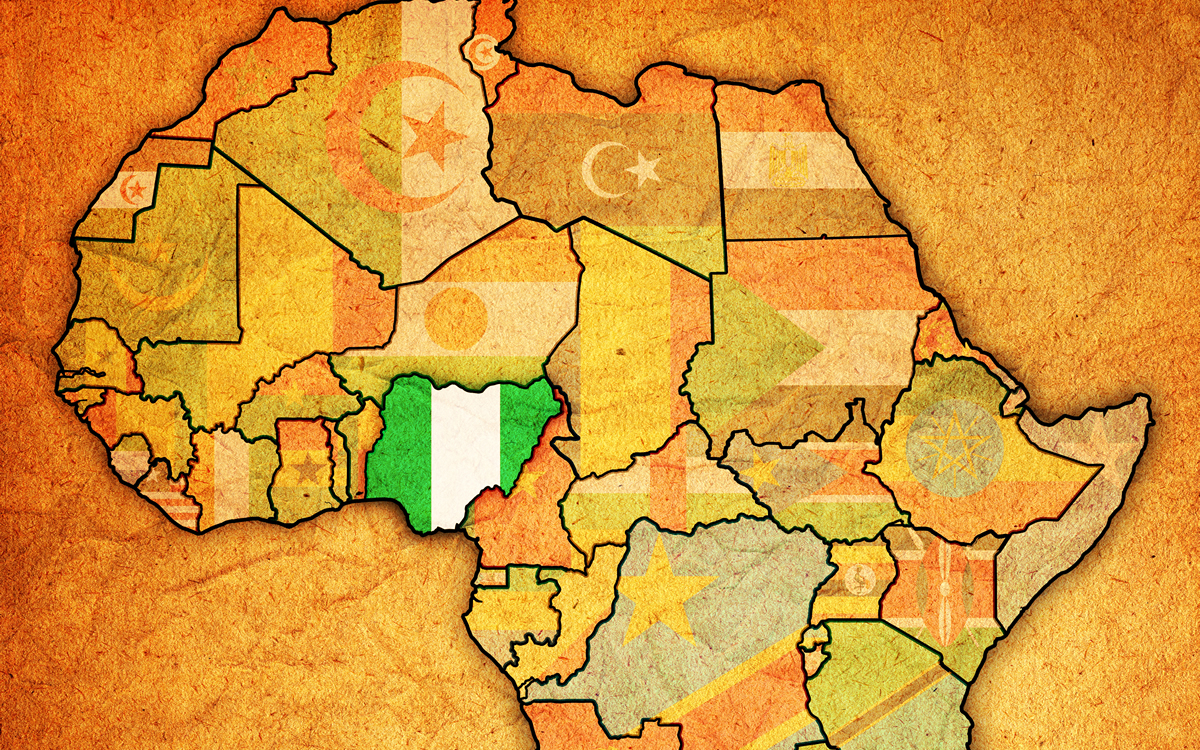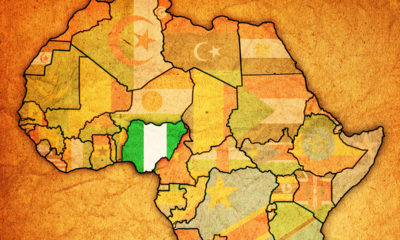Nigeria
Four men accused of homosexuality beaten, chased out of Nigerian city
Incident took place in Benin City on Nov. 17

Four young men have been beaten and chased out of a Nigerian city after they were found engaging in consensual same-sex sexual activity.
An angry mob paraded the four men, who were only wearing boxing shorts, down Nomayo Street in Benin City, the capital of Edo state, on Nov. 17. One of them had a visible deep cut on his forehead as a result of the beating.
The mob threatened to kill them if they were to return to the city. It also questioned why they were “into” homosexuality when there were many women in the area.
Samson Mikel, a Nigerian LGBTQ+ activist, said the attack was misdirected anger.
“Benin City is one of the backward places in Nigeria and a dorm for scammers and other crimes, the people are proud of their roughness, they are never concerned about these other crimes or how the government is impoverishing them, but will light gay men on fire the moment they think,” said Mikel. “All they want is to live and experience love. They are not the cause of the economic meltdown in the country, neither are they the reason why there are no jobs in the streets of Nigeria.”
Attacks like the one that happened in Benin City have been happening across Nigeria — the latest took place in Port Harcourt in Rivers state last month.
Section 214 of the Criminal Code Act on Unnatural Offenses says any person who has “carnal knowledge of any person against the order of nature, or has carnal knowledge of an animal, or permits a male person to have carnal knowledge of him or her against the order of nature, is guilty of a felony” and could face up to 14 years in prison.
Several LGBTQ+ people and activists have been arrested under Section 214.
In some cases they are murdered with law enforcement officials showing little to no interest in investigating, such as the case of Area Mama, a popular cross-dresser whose body was found along the Katampe-Mabushi Expressway in Abuja, the Nigerian capital, in August.
The Initiative for Equal Rights, a Nigerian advocacy group, said the federal government should take concrete steps to protect the rights of all Nigerians.
“For many, especially LGBTQIA+ individuals, women, and those within the Sexual Orientation Gender Identity, Expression and Sexual Characteristics (SOGIESC), community, freedom remains a distant goal. Discrimination, violence and human rights violations are daily realities,” said TIERs Nigeria. “Despite the progress we have made, the journey towards justice is long, but our voices remain unwavering.”
TIERs Nigeria also called upon the federal government to repeal the Same Sex Marriage (Prohibition) Act 2014, to respond to the African Commission’s recommendation to review laws that criminalize rights of assembly and association, and to enact laws and policies that discourage hate speech and other actions that incite discrimination against LGBTQ+ people.
Many Nigerians vehemently oppose public discussions about LGBTQ+-specific issues because of religious and cultural beliefs.
A number of local and international human rights organizations have advised the federal government to prioritize the rights of everyone in Nigeria, including those who identify as LGBTQ+. There is, however, little hope that Nigerian officials will do this anytime soon.
Consensual same-sex sexual relations remain punishable by death in states with Sharia law. Those who advocate for LGBTQ+ rights in these areas could also face a similar fate.
Nigeria
Gay couple beaten, paraded in public in Nigeria
Incident took place in Port Harcourt this week

A gay couple was beaten and paraded in public this week because of their sexual orientation.
In a video clip shared by Portharcourt Specials on X, the couple who appeared half naked were being insulted and slapped on the back, with one showing trails of blood on his back. The incident took place in Rumuewhara in Port Harcourt.
Although consensual same-sex sexual relations are criminalized in Nigeria and punishable by death on some states, many Nigerians viewed the attack against the couple as distasteful, arguing rapist or pedophiles don’t face the same treatment.
“This is where you will see Nigerians very active on; on matters that don’t concern them because why is someone’s sexual orientation your problem? We are well deserving of politicians that punish us well,” said Rinu Oduala, a human rights activist.
No Hate Network Nigeria, an LGBTQ rights organization, said the couple’s public victimization was a stark reminder of the rampant homophobia in the country.
“The brutal attack on the gay couple is appalling and unacceptable,” said the organization. “It’s a stark reminder of the rampant homophobia and intolerance in Nigeria.”
“Such violence is often fueled by discriminatory laws, societal norms, and lack of education, this incident highlights the urgent need for increased advocacy, education, and protection for LGBTQI+ individuals,” added No Hate Network Nigeria.
No Hate Network Nigeria also highlighted the plight of LGBTQ people in the country who are constantly under attack due to current laws and cultural and religious norms.
“The LGBTQI+ community in Nigeria faces extreme risks, including violence, harassment, and persecution, the Same-Sex Marriage (Prohibition) Act of 2014 exacerbates these challenges, effectively criminalizing LGBTQI+ individuals,” said No Hate Network Nigeria. “Many live in fear, hiding their identities to avoid persecution, the community requires enhanced support, safe spaces, and robust advocacy to ensure their basic human rights.”
For many LGBTQ people in the country, remaining in the closet is the only way they can preserve their life. They often flee Nigeria if they decide to come out.
There is currently no appetite from any lawmakers to amend or repeal parts of Section 21 of the Criminal Code Act (Penal Code) that are used to arrest, charge, and prosecute those who identify as LGBTQ.
In northern states where Sharia law is practiced, one who is found to identify as LGBTQ or is an advocate may face death by stoning.
Although not widely practiced, death by stoning is the preferred punishment in many of the northern states if a Sharia court finds someone guilty of engaging in consensual same-sex sexual relations. A number of local and international human rights organizations in recent years have condemned this punishment. It is, however, still enforced in some of these states.
No Hate Network Nigeria said amending parts of the Criminal Code Act and repealing the Same Sex (Prohibition) Act might give relief to LGBTQ people in the country.
“Repealing or amending discriminatory laws, like the Same-Sex Marriage (Prohibition) Act, implementing education and awareness campaigns to combat homophobia, establishing safe spaces, and support networks for LGBTQI+ individuals and strengthening law officials’ response to hate crimes as well as holding perpetrators accountable, will aid in averting and combating attacks on LGBTQI+ individuals,” said No Hate Network Nigeria.
-

 a&e features4 days ago
a&e features4 days agoMusical Mondays, a mainstay in WeHo nightlife, celebrates 16 years
-

 National2 days ago
National2 days agoDiscredited former cop played ‘key role’ in deportation of gay make-up artist
-

 Arts & Entertainment3 days ago
Arts & Entertainment3 days ago‘Bring it to Brunch’ returns to West Hollywood
-

 Arts & Entertainment1 day ago
Arts & Entertainment1 day agoA Night of legacy, love, and liberation: Inside the 2025 April Fool’s Ball
-

 Myanmar3 days ago
Myanmar3 days agoLGBTQ+ advocacy group joins Myanmar earthquake relief effort
-

 California2 days ago
California2 days agoSouth Park provides green space to a predominantly Latino community
-

 a&e features3 days ago
a&e features3 days agoPeppermint thrives in the spotlight
-

 Arts & Entertainment1 day ago
Arts & Entertainment1 day agoSouth Coast Repertory Theatre hosting world premiere production
-

 Movies15 hours ago
Movies15 hours agoHeartfelt ‘Wedding Banquet’ remake a romcom worth seeing
-

 Brazil10 hours ago
Brazil10 hours agoUS lists transgender Brazilian congresswoman’s gender as ‘male’ on visa






